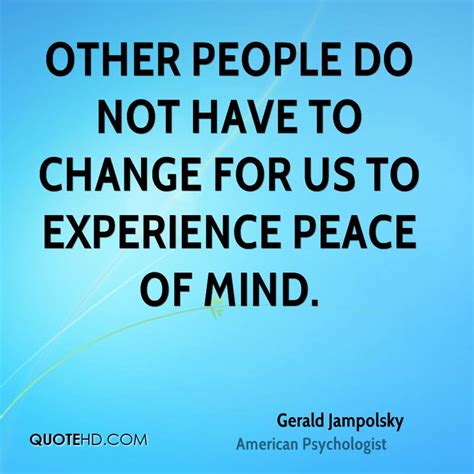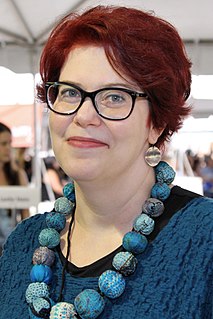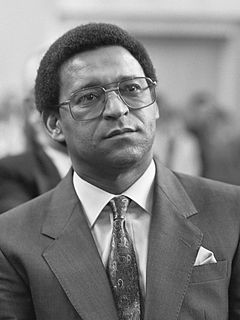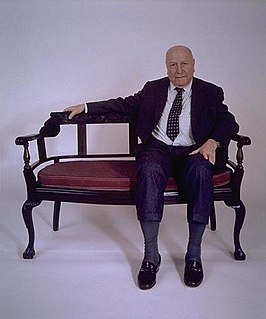A Quote by Gerald Jampolsky
Related Quotes
On the whole, however, the critic is far less of a professional faultfinder than is sometimes imagined. He is first of all a virtue-finder, a singer of praise. He is not concerned with getting rid of dross except in so far as it hides the gold. In other words, the destructive side of criticism is purely a subsidiary affair. None of the best critics have been men of destructive minds. They are like gardeners whose business is more with the flowers than with the weeds.
When we love another, we never ever seek to limit or restrict them in any way whatsoever. Love says, "My will for you is your will for you." Love says, "I choose for you what you choose for you." When I say, "I choose for you what I choose for you," then I'm not loving you. I'm loving me through you, because I'm getting what I want, rather than seeing you get what you want.
But I'd rather help than watch. I'd rather have a heart than a mind. I'd rather expose too much than too little. I'd rather say hello to strangers than be afraid of them. I would rather know all this about myself than have more money than I need. I'd rather have something to love than a way to impress you.
Being proactive is more than taking initiative. It is recognizing that we are responsible for our own choices and have the freedom to choose based on principles and values rather than on moods or condition. Proactive people are agents of change and choose not to be victims, to be reactive, or to blame others.





































